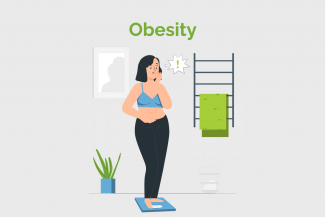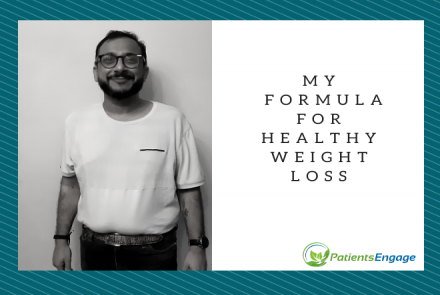Worldwide obesity has more than doubled since 1980. In 2014, more than 1.9 billion adults, 18 years and older, were overweight. Of these over 600 million were obese. 39% of adults aged 18 years and over were overweight in 2014, and 13% were obese. Most of the world's population live in countries where overweight and obesity kills more people than underweight. 42 million children under the age of 5 were overweight or obese in 2013.
Obesity is preventable.

While Obesity should be managed by making lifestyle changes as described in Obesity Management section, in some cases you may need medications or surgery as prescribed by your doctor.
Medications
If your BMI is 28 or more medications like
- Sibutramine (Meridia®)
- Orlistat (Xenical® and Alli®): This drug reduces the absorption of fats, fat calories, and vitamins A, D, E, and K thereby promote weight loss. Causes most of the weight loss within the first 6 months of taking the medicine. These medicines can cause mild side effects, such as oily and loose stools.
- Lorcaserin Hydrochloride (Belviq®) and Qsymia™: Recommended for chronic (ongoing) weight management. These drugs should be combined with low-fat diet and weight loss strategies.
- Medicines to treat depression, seizures (topiramate and zonisamide), diabetes (Metformin) causes small amounts of weight loss. It's not known how this medicine causes weight loss, but it has been shown to reduce hunger and food intake.
Others:
- Ephedra a plant product causes short-term weight loss, but it also has serious side effects. It causes high blood pressure and stresses the heart. In 2004, the FDA banned the sale of dietary supplements containing ephedra in the United States.
- Chromium reduces body fat. While studies haven't found any weight-loss benefit from chromium, there are few serious side effects from taking it.
- Diuretics and herbal laxatives makes lose water weight, not fat. They also can lower your body's potassium levels, which may cause heart and muscle problems.
- Hoodia is a cactus that acts as an appetite suppressant.
All these products have side effects.
Surgery
- Banded gastroplasty and
- Roux-en-Y gastric bypass.
- Gastroplasty: At top of the stomach a small pouch is created by using a band or staples. This advantage of the surgery is that it limits the amount of food and liquids, the stomach can hold.
- Gastric bypass: A small stomach pouch is created by a bypass around a part of the small intestine where most of the calories you eat are absorbed. This causes reduced food intake and also reduces the calories the body can absorb.
- Multivitamins and minerals should be supplemented to prevent nutrient deficiencies and life-long follow-up is recommended along with balanced diet and appropriate physical activity.
- Bariatric surgery is recommended for severely obese patients if no other measures have responded and also for people with BMI >50
Changed
12/Sep/2017
Community
Condition














